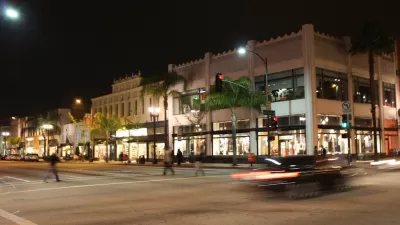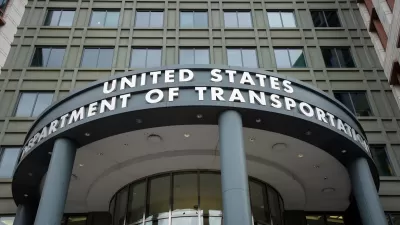75 years after the first meter was installed in Oklahoma City, cities are beginning to rethink traditional parking regulation strategies. Tom Vanderbilt considers the options.
Cities are notoriously incompetent when it comes to extracting money from their parking meters, as demonstrated by Donald Shoup and others, says Vanderbilt. In recent years, many have turned to public-private partnerships to regulate meters like Chicago, which sold 75-year rights to their meters to Morgan Stanley in 2008. However, such strategies are a missed opportunity to capture revenue for transportation improvements, says Vanderbilt. Instead, cities should focus on using new technologies to simplify payment and collection of parking fees.
Vanderbilt writes:
'Parking meters, a seemingly mundane fact of the urban landscape, remain as fraught and controversial as when they were first installed...the time has finally come for a sweeping rethink of the parking meter-in part because of changes in technology, and in part because of an emerging change in the way we think about parking in cities.'
FULL STORY: The end of the parking meter

Maui's Vacation Rental Debate Turns Ugly
Verbal attacks, misinformation campaigns and fistfights plague a high-stakes debate to convert thousands of vacation rentals into long-term housing.

Planetizen Federal Action Tracker
A weekly monitor of how Trump’s orders and actions are impacting planners and planning in America.

In Urban Planning, AI Prompting Could be the New Design Thinking
Creativity has long been key to great urban design. What if we see AI as our new creative partner?

How Trump's HUD Budget Proposal Would Harm Homelessness Response
Experts say the change to the HUD budget would make it more difficult to identify people who are homeless and connect them with services, and to prevent homelessness.

The Vast Potential of the Right-of-Way
One writer argues that the space between two building faces is the most important element of the built environment.

Florida Seniors Face Rising Homelessness Risk
High housing costs are pushing more seniors, many of them on a fixed income, into homelessness.
Urban Design for Planners 1: Software Tools
This six-course series explores essential urban design concepts using open source software and equips planners with the tools they need to participate fully in the urban design process.
Planning for Universal Design
Learn the tools for implementing Universal Design in planning regulations.
Gallatin County Department of Planning & Community Development
Heyer Gruel & Associates PA
JM Goldson LLC
City of Camden Redevelopment Agency
City of Astoria
Transportation Research & Education Center (TREC) at Portland State University
Jefferson Parish Government
Camden Redevelopment Agency
City of Claremont





























